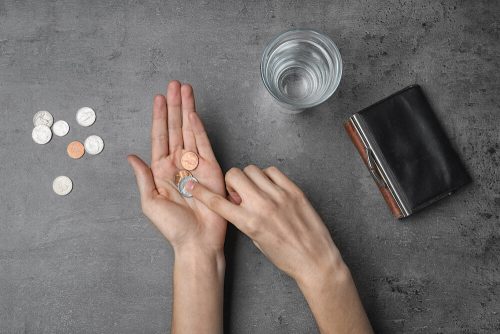There’s a saying among hikers that a group can only really move forward to reach a destination at the pace of the slowest. Unfortunately, when it comes to the march towards building a world in which everyone can thrive, the slowest among us are walking very, very slowly.
We can see this all around us, as turmoil from hate and racism and environmental crises and pandemics have left so many perplexed and concerned. With all the issues our country (and our world) is facing, it’s become more undeniable than ever that the problems of a few are the problems of the many.
Recently Rebecca Crichton wrote a beautiful piece about togetherness. She asked: what would our world look like if we each looked at what we might do TOGETHER? If we’re all in this interconnected world together, then wouldn’t it make sense to see that all had a chance to succeed?! We want to build a better world for our children and grandchildren, but that requires building a better world for all the world’s children.
To do so, we must each examine what we can do in our short time on this planet to make our world a better place. As the poet, Mary Oliver, asked at the conclusion of one of her beautiful poems, “Tell me, what is it you plan to do with your one wild and precious life?”
For those who, like me, are blessed to be well-off, this examination requires a fundamental reckoning with our relationship with money and its role in society.
How much money is enough? It’s pretty subjective. Several years ago I met a woman on one of Seattle’s ferries. She had been, by all measures, wealthy, and knew that women in her family had tended to die very young. So, being about 45, she concluded that she hadn’t many, if any, years left. She then dramatically gave almost all of her investments, accounts, and physical assets away. But I met her when she was approaching 50, and she reported being financially broke and in search of some community where she could give of time & talents, without a financial investment. Her spirit was bright, and her step light. I wished her well as she went on her quest.
Society seems to emphatically say that someone can never have enough money. I, however, say “bull*%#!” (although the woman in the story above may have, in my mind, cut it a bit short). Our former US President (#45) has been one of those erring on the other side where no amount is sufficient, but his judgment about a lot of things is questionable, to put it gently.
My thought is that I cannot take it with me, accumulating more won’t keep me alive, and, once the basics are covered, more won’t make me happier. Numerous research efforts have confirmed that, once I’m securely housed, fed, safe, educated and such, the increased dollars increase burdens more than happiness. Everyone may have a different view about how much is “enough,” but there is a line, and don’t let anyone tell you otherwise.
Perhaps even more important than deciding what is “enough,” those of us with wealth need to take an active role in understanding both how that wealth both came to us, and how it flows away from us.
Does it matter how my money came to me? I believe it does. The subject of reparations or return of land or stolen money to Black, Indigenous, or other groups is very much in our public discussion now. I’ve read, watched, and listened – and I’ve concluded that ensuring preferential treatment of those who’ve been disenfranchised is called for. Without feeling guilty, the fact that I have benefited from past injustices mean I am responsible for acting in a way that moves toward equity.
Money flows through many hands, but some hands, however, have not been allowed to hold any. The money that is mine today belonged to someone else. It will belong to someone else soon. I get to participate now in thinking about how I can shape that flow to ensure it ends up in the hands of people who need it, and to influence how widely it spreads out to nourish this world in which ALL move together, at the pace of the slowest.
